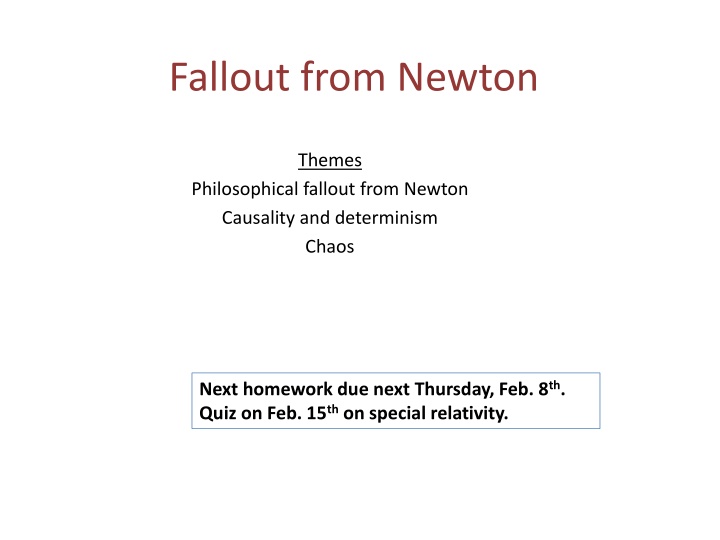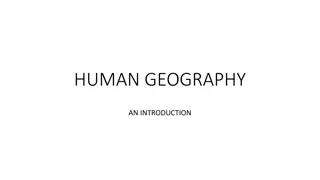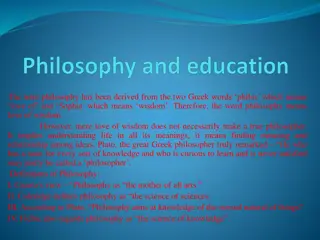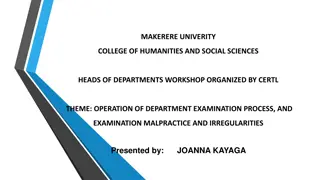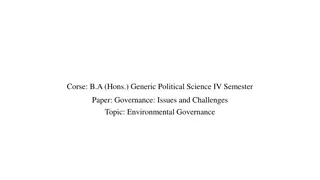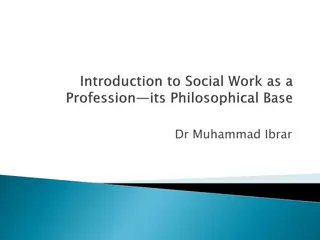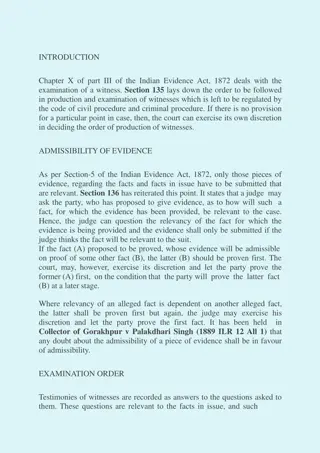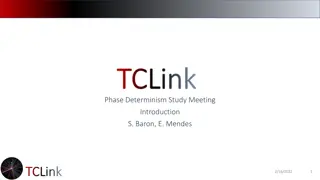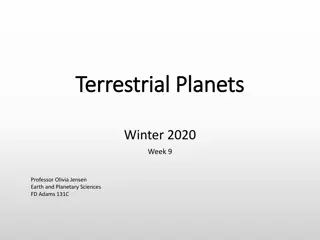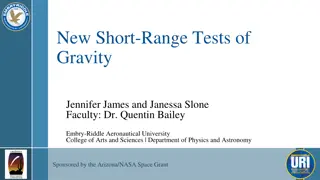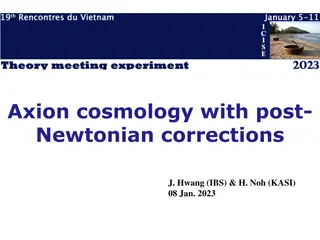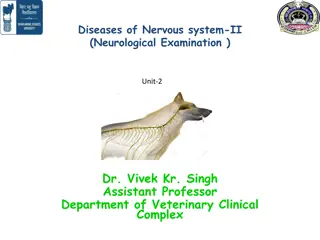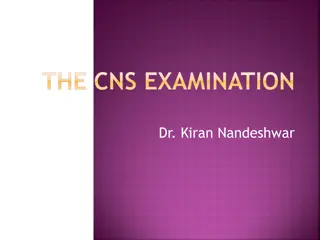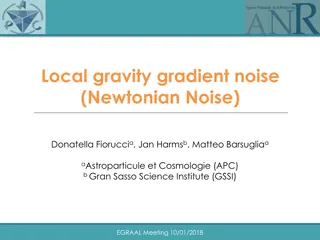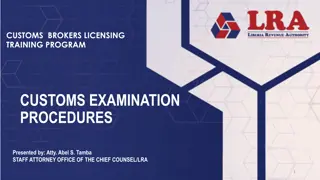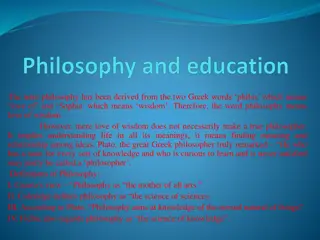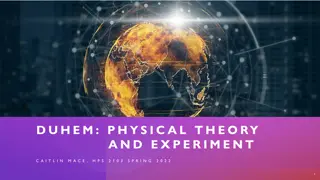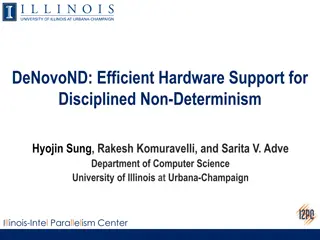Newtonian Determinism and Philosophy: A Critical Examination
Within Newton's philosophical framework, the interplay between causality, determinism, and empiricism shapes his views on space, time, and the nature of reality. Examining his rules of reasoning and the implications of Newtonian determinism, we delve into the philosophical underpinnings of his scientific worldview and its impact on the concept of a deterministic universe governed by natural laws.
Download Presentation

Please find below an Image/Link to download the presentation.
The content on the website is provided AS IS for your information and personal use only. It may not be sold, licensed, or shared on other websites without obtaining consent from the author.If you encounter any issues during the download, it is possible that the publisher has removed the file from their server.
You are allowed to download the files provided on this website for personal or commercial use, subject to the condition that they are used lawfully. All files are the property of their respective owners.
The content on the website is provided AS IS for your information and personal use only. It may not be sold, licensed, or shared on other websites without obtaining consent from the author.
E N D
Presentation Transcript
Fallout from Newton Themes Philosophical fallout from Newton Causality and determinism Chaos Next homework due next Thursday, Feb. 8th. Quiz on Feb. 15th on special relativity.
Newton and Philosophy Newton saw himself as an empiricist. I do not entertain hypotheses, meant that he did not want to spend time on ideas (e.g., what is the true nature of things) that are not rooted in observation. Whatever is not deduced from the phenomena is to be called an hypothesis; and hypotheses, whether metaphysical or physical, whether of occult quantities or mechanical, have no place in experimental philosophy. In this philosophy particular propositions are inferred from the phenomena and afterwards rendered general by induction. (Principia, book II) Can ANYTHING be deduced from the phenomena ? At least that was his self-image. In practice, he spent more time on theological speculations and alchemy than on physics, and within physics his theory of light (particles undergoing alternating fits of easy and hard refractability) was exactly the sort of speculation he claimed to eschew. How do Newton s views on space and time fit with his philosophical rules?
Newtons four rules of reasoning in natural philosophy (Principia, Book III) Simplicity. We are to admit no more causes of natural things than such as are both true and sufficient to explain their appearances. So that issue is settled? Induction. The qualities of bodies ... which are found to belong to all bodies within the reach of our experiments, are to be esteemed the universal qualities of all bodies whatsoever. Which qualities? To what extent can induction be justified? To what extent do discoveries made by induction represent reality ? Uniformity. To the same natural effects we must, as far as possible, assign the same causes. In some sense, a combination of simplicity and induction. Empiricism. In experimental philosophy we are to look upon propositions collected by general induction from phenomena as accurately or very nearly true, notwithstanding any contrary hypotheses that may be imagined, till such time as other phenomena occur, by which they may either be made more accurate, or liable to exceptions.
Determinism Suppose one knew the force laws (i.e., how to calculate F in a given situation). Then if one knew the motions of all objects at any moment, one would, in principle, know the entire past and future. In Newtonian physics, events are inevitable. Let us imagine an Intelligence who would know at a given instant of time all ... forces ... and positions ... and that this Intelligence would be capable of ... mathematical analysis. ... Nothing would be uncertain. ... The past and the future would be present to its eyes. (Laplace, 1820, Theorie Analytique) But Laplace acknowledged : Geometry provides a weak outline of this Intelligence man will remain infinitely far removed from it. (Laplace) Newtonian determinism fed into a Deistic religious stance: The "intelligence" could be treated as God, perhaps as one somehow involved in the initial setting of a clockwork universe, but not as one intervening to disrupt the inevitable lawful workings of the machine.
Is Newtons universe deterministic in practice? Let's worry only about gravity- the question would be even messier with forces for which there's no exact universal law. The motion of three gravitating bodies cannot be calculated exactly. The only way to predict the motion is to do it, or simulate it, i.e. make a numerical computation of the behavior, e.g. breaking time into little intervals over which the positions and hence forces are given approximately by the results of the preceding calculation. Chaotic behavior limits one s predictionsto the logarithm of one s computing power. The log of 10100is 100. That s why we don t know next week s weather. The solar system itself appears to be weakly chaotic. Imagine a friction-free pool table, following very simple collision rules. It's not hard to see that small initial errors grow rapidly into extreme unpredictability. A small uncertainty in the direction of one ball leads to a bigger uncertainty in its direction after a collision. The uncertainties just keep multiplying, so that you soon cannot even predict which collisions will occur. Chaotic behavior precludes repeatability on long time scales. So, how does one verify that a system is deterministic? Is computability an essential feature of determinism?
Causality The laws would give the hypothetical "Intelligence" a way to calculate what the results would have been if conditions had been different. So a definition of causation that starts "if things had been different, then " would be meaningful. In the absence of such laws, what does it mean to say that "A caused B ? On the other hand, if there is complete causation, how can you isolate one event and ask what would have been different if only that event were different? Wasn't that event (e.g. an umpire's bad call) just as inevitable as anything else? For the more metaphysically inclined: If there is determinism, then how can there be free will? There are no choices to make. If there is no determinism, how can there be any will, free or otherwise? (The nice thing about teaching this course rather than a metaphysics course is that I do not have to follow up on such questions.)
Generalizations? The stunning successes of physics (especially for astronomy) led to attempts to adopt its principles in other fields. Some of these confused the type of principles that described how things are with the type of rules that societies ought to adopt. Chemistry and biology: mechanistic, causal theories were sought, and, to a large extent, slowly found/are being found. Sociology (Auguste Comte): There should be some set of rules, based on generalization from observation, which describe the mysteries of why societies act the way they do. Economics (e.g. Adam Smith): The machine is supposed to work by letting a few simple principles play out, rather than by a hodge-podge of particular rules. Politics (many people, e.g., Thomas Jefferson): Rather than have different rules for a myriad of different qualitative types of people (ranks of nobles, etc.) there should be some simple universal rules. Which would not, of course, prevent the less 'massive' people from orbiting the more 'massive' ones. Anything important should be written in a style imitating Newton, imitating Euclid. "We hold these truths to be self evident "
Conservation Laws you can predict a few things even in complicated systems Newtonian physics contains conserved quantities. Conserved means that the total value does not change with time. N s 3rd law gives us: Linear momentum. mv, v is vector velocity M v2 v1 mv v m2 m1 M BAM! V V m1v1+m2v2+MV unchanged mv+MV The rule that gravity etc. point along the line between the objects gives: angular momentum. This is a measure of an object s motion around some point. (It turns out that for planetary orbits, this conservation law is just the equal-areas per equal-times law.) Tests require the somewhat circular assumption that we have a frame that s not accelerating or rotating. Other conserved quantities (not known by Newton): Energy: a conserved sum for gravity, more to be discussed later Electric charge: discovered by Faraday in the 19th century.
Symmetries of Space and Time in Newton's Physics Space has translational invariance. No preferred positions. No matter where you do an experiment, you ll get the same answer. Of course, the environment must be the same (near the Earth is clearly not the same as far from the Earth). Residents of the Andromeda Galaxy presumably see the same laws of physics that we do. This is not pure conjecture. We can see through telescopes (and other astronomical methods) that the same processes, such as nuclear fusion, are taking place all over the universe. Space has rotational invariance. You can align your apparatus E-W or N-S, and it doesn t matter. Timehas a similar translational invariance. It doesn t matter when you do your experiment. If space and time did not have these properties, then one could determine an absolute position, orientation, and time. That is, Aristotle would be correct. Together with Galilean invariance(it doesn t matter how fast you re "moving" or which way), these are the symmetries of Newton s space and time. They are testable.
How are the symmetries manifest? Look at Newton s law of gravitation: r12 The space & time symmetries tell us: Absolute time may not appear in the equation. (time translation) Only the relative position, r12may appear in the equation. (space translation) The forces must point along the line joining the objects, if the forces depend only on relative positions, not velocities. (space rotation) Note that if we either rotate the system, or look at it from a different direction, the same laws work. If we rotate the system and ourselves together to some new angular position, everything even looks identical. There s no way to know that we d all been rotated without looking outside, e.g. at the stars.
More symmetries of gravity Galilean relativity : If you set both objects in the same uniform motion, their distance is unchanged. So the force is unchanged. The predicted acceleration is thus unchanged. Adding a fixed velocity does leave the accelerations unchanged. So Newton's gravity fits Galilean relativity. Notice another symmetry: between m and M. The law itself does not distinguish anything qualitative between the objects. If you change the names, you still calculate exactly the same forces. There's a peculiarity about the law of gravity: the amount some object (same m) accelerates does not depend on its mass, which cancels out when you combine a=F/m with F=GmM/r2 to give a=GM/ r2. If gravity were the only force law, we would not bother to describe "forces" but would simply say that every object with mass M caused every other object to accelerate by an amount:
Two more symmetries Time reversal. So long as the forces (like gravity) depend only on positions, not velocities, Newton s laws tell us that every physical process can proceed as well in reverse. If one runs a film backward, nothing impossible happens. Mathematically, if we let t (time) become -t, Newton s equations remain valid, because in calculating acceleration, we divide twice by time increments, so it doesn't matter if we call both increments positive or negative. There are velocity-dependent forces, but they also work in reverse, because the product of two velocities enters into the force laws. Is time-reversal symmetry really correct? The future is not the same as the past. Parity (mirror image). The mirror world behaves identically to ours. This is not true for some very small particles.
Why is symmetry a good thing to discover? It simplifies the math. It leads to conservation laws. It leads to conceptual connections that were not previously understood. We ll see in relativity that all the symmetries above are aspects of more a general symmetry. Symmetry provides a powerful tool for simplifying the analysis of problems.
Energy Energy conservation is more difficult to observe than momentum, because energy can exist in various forms. So can momentum, but in many cases it stays in the form of visible motions. For pure gravity sum up kinetic (mv2/2) and potential ( GmM/r): It s conserved! (constant in time) Generalize potential energy to include other forces e.g., springs have more potential energy when they re stretched or compressed. chemical energy, "heat", . The history of heat illustrates how the interpretation of data is colored by one s theoretical framework. In the 18th century, heat was thought to be a distinct fluid, the caloric. (Lavoisier) The temperature of an object depended on the amount of caloric it contained, like the height of water in a container depends on the amount of fluid it contains. Just as water flows from higher to lower, heat would flow from hotter to colder regions.
Count Rumford s cannon-boring experiment (1798) was the first blow against caloric theory, because he could generate a seemingly unlimited amount of heat with his drills. However, at the time, this was seen as elucidating the properties of the caloric, not refuting its existence. (Objects do contain a seemingly infinite amount of electrical charge, i.e. much greater than the amount transferred in ordinary electrical processes, so this isn t a dumb idea.) Carnot s study of heat engine efficiency in 1824 was still done entirely within the caloric theory. The early development of efficient steam engines by Watt and others used caloric analysis. Each such practical success leaves a deeper impression that the theory must be basically right. In the 1840s, Joule explicitly demonstrated the transformation between mechanical energy and heat. With this, it became possible to consider that energy is actually conserved, when all its forms are taken into account. The caloric theory was internally consistent, and worked well for a range of phenomena. After Joule, etc., caloric theory would need special rules for conversion of caloric to and from energy forms. It became messier than the modern picture, for which heat is just ordinary kinetic and potential energy associated with myriad microscopic modes.
Testing theories (see Feynman on energy conservation) Energy is the sum of a bunch of terms. Not all of them are obvious. Suppose energy conservation appears to be violated. Should we throw out the law or look for another term? The usual response is that since it has worked so well for so long, the first thing to do is look for a new term. If the search is fruitless, after a while it will be time to consider a new theory. In the study of nuclear processes in 1930 s, some of them ( -decay) seemed to violate conservation of energy, of angular momentum and of momentum. Was that worse or better for conservation laws than the violation of just one law? To preserve the law, Fermi proposed the existence of neutrinos ( little neutral ones ). It took 20 years, but they were finally discovered in 1955. What would it mean to "discover" these particles? How do you know they're there? If you had no conservation law, would the particle be observed? One value of a theoretical framework is that it points to new phenomena to look for. Even better if they actually exist. But how long does one continue to look before abandoning the old theory?
